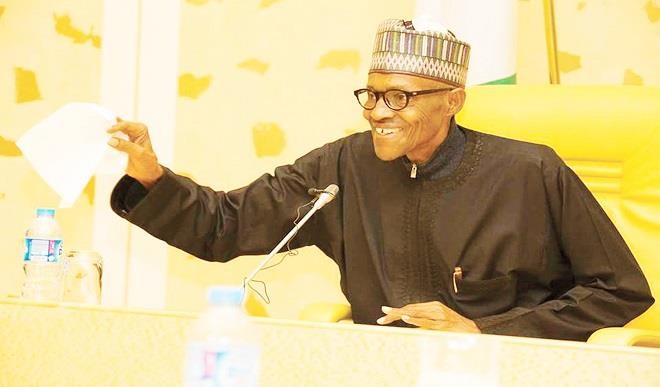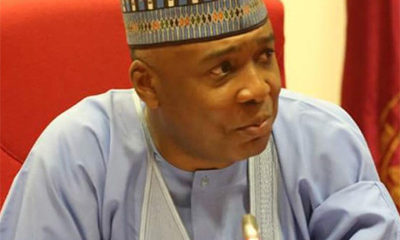News
President Buhari Plans Education Bond For Public Varsities

The Federal Government is considering setting up an education bond to finance infrastructure in public universities, President Muhammadu Buhari has said.
Buhari made the idea known at University of Ibadan on Saturday on the occasion of the institution’s 2018 Convocation and 70th Foundation Day Ceremony.
Laolu Akande, Senior Special Assistant on Media and Publicity to the President, Office of the Vice President, in a statement on Sunday in Abuja, said Buhari, who is Visitor to the University, was represented by the Vice President. Prof. Yemi Osinbajo.
Buhari restated that education could not be left to Government alone as none of the world’s leading universities depended wholly or even substantially on government funding.
He said that universities all over the world had evolved innovative means of financing and investment to meet their funding needs and become financially sustainable.
Buhari added that one of the solutions that must be explored was the alumni network, noting the University of Ibadan’s vast alumni network, by virtue of its age, had a lot to offer.
“Amongst other options we are working on the details of an education infrastructure bond for public universities, to involve raising money from the capital market to give a push to infrastructure in our universities.
“Our on-going talks with the Academic Staff Union of Universities(ASUU) are a fallout of the chequered history of negotiations concluded in 2013 with government.
“There is no question that ASUU has a point. However, we must seek to resolve it amicably and with minimum disruption to the academic calendar.’’
According to him, given the radical changes that technology has brought to bear in both the challenges and opportunities in education, the N-Power employment scheme of the Buhari administration provides a technology platform to train teachers.
Buhari noted that the N-Power programme a technology driven employment and skills training programme, had employed 500,000 young men and women who were hired using a technology platform developed by young Nigerians.
“We have had the collaboration of the Massachusetts Institute of Technology, the Oracle Academy, Microsoft, Cisco Academy and IBM.
“How do we train teachers quickly and efficiently, aside from traditional teacher training institutes which must be refitted to deal with new technology-driven pedagogy? We must use technology platforms to train.
Risky to return power to PDP, Buhari should continue – Garba Shehu
“We have had a few eye openers in this regard when we launched our N-Power programme.
“We trained them and provided materials for continuous training using our open platform and each of them was provided with an electronic tablet which contains a lot of training and teaching materials for the large number who teach in schools in every local government in Nigeria,” he said.
Buhari said that in the next few years, both teacher training and teaching would be largely driven by technology; with university education, especially scientific research, made easy by virtual reality and Artificial intelligence tools.
The president said that the current gaps in educational attainment in the country had made it clear that Nigeria had to change both the substance of education its children received and the methods by which they are taught.
According to him, the early stage investment in primary and secondary school education is key to becoming a knowledge-driven economy.
He said that Federal Government’s policy was to develop and introduce STEAM education – Science Education, Engineering, Arts and Math – curriculum in primary and secondary schools.
Buhari said that the curriculum covered training in skills in cross disciplinary, critical and creative thinking, problem solving and digital technologies, coding, digital arts, design thinking, and robotics.
Other notable Nigerians who spoke on the occasion were Governor of Oyo State, Mr Abiola Ajimobi; Gen.- Yakubu Gowon; the Chancellor of the University and Sultan of Sokoto, Alhaji Sa’ad Abubakar III as well as the Pro-Chancellor, Joshua Waklek.










